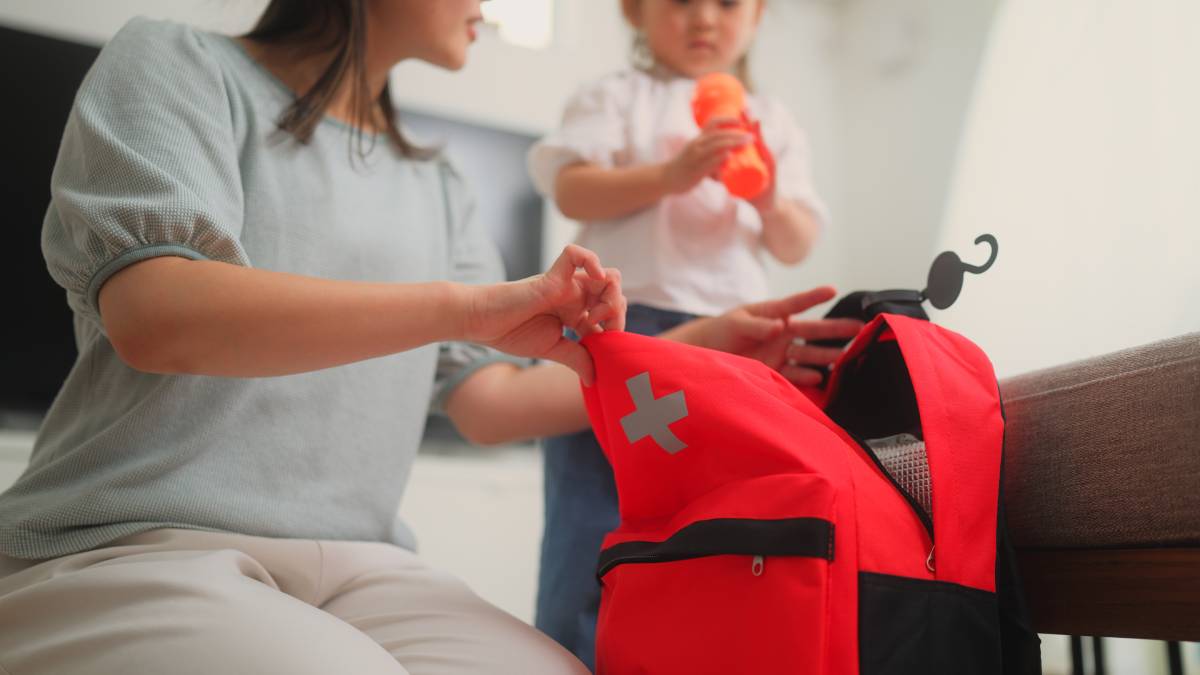Protecting Your Health During a Hurricane

Hurricanes are powerful and destructive natural events that can pose significant risks to your health and safety. These storms bring with them strong winds, heavy rainfall, flooding, and power outages, all of which can create hazardous conditions. While preparing for structural damage is crucial, it’s equally important to take steps to safeguard your health. This article outlines tips for protecting your well-being during and after a hurricane, covering everything from emergency preparedness to avoiding common health hazards.
An emergency preparedness kit is essential for protecting your health during a hurricane. It should contain the supplies you’ll need if you lose power or have to evacuate. First, ensure you have at least a week’s supply of prescription medications. If you take special medications that need refrigeration, have a cooler and ice packs on hand. Include basic items like bandages, antiseptics, and any personal medical equipment. In addition, store enough water for at least three days, as well as non-perishable food items. Staying hydrated and nourished is vital to avoid dehydration or malnutrition, especially during prolonged power outages. Finally, pack sanitation supplies such as hand sanitizers, moist towelettes, garbage bags, and tissues to maintain cleanliness if running water is unavailable 1,2.
Hurricanes can lead to power outages, increasing the risk of heat-related illnesses, especially in warmer climates. If your home loses power, stay hydrated by drinking plenty of fluids, particularly water, to avoid dehydration. In addition, wear lightweight, loose-fitting clothing and use battery-powered fans if available. Use wet cloths to cool down and, if safe, open windows to promote ventilation. If you’re using a generator, make sure it’s placed outdoors and away from windows to avoid carbon monoxide poisoning—a potentially fatal hazard during power outages 3,4.
Flooding is one of the most dangerous aspects of a hurricane, and it can lead to serious health risks such as waterborne illnesses. Floodwater may be contaminated with sewage, chemicals, or sharp debris. Contaminated water can lead to gastrointestinal issues, skin infections, or more severe diseases like leptospirosis, so it is important to avoid floodwater as much as possible. If you suspect your water supply is contaminated, boil water for at least one minute before consuming it, or use water purification tablets. Bottled water is the safest option if available 4–6.
The aftermath of a hurricane often leaves behind dangerous debris, such as broken glass, nails, and sharp metal objects. When cleaning up, wear sturdy boots, long pants, and work gloves to protect against cuts, punctures, and scrapes 7,8.
Finally, if local authorities issue an evacuation order, it is essential to follow it without hesitation. Evacuating early reduces the risk of being stranded in dangerous conditions and ensures you can get to a safe location in time 9.
Protecting your health during a hurricane requires proactive preparation, smart decision-making, and careful attention to your environment. Hurricane season is typically August through November and primarily affects states along the East Coast, though hurricanes can occasionally travel a significant distance inland. Those who live within the impact zone are strongly encouraged to make plans in the event of an emergency.
References
1. Packing a Hurricane Emergency Supply Kit | Johns Hopkins Medicine. Available at: https://www.hopkinsmedicine.org/health/wellness-and-prevention/packing-a-hurricane-emergency-supply-kit.
2. US Department of Commerce, N. N. W. S. Emergency Supplies Kit. Available at: https://www.weather.gov/owlie/emergencysupplieskit
3. During a Hurricane | NCHH. Available at: https://nchh.org/information-and-evidence/learn-about-healthy-housing/emergencies/hurricanes/during-a-hurricane/.
4. Preparing for Hurricanes or Other Tropical Storms | Hurricanes | CDC. Available at: https://www.cdc.gov/hurricanes/safety/index.html.
5. Emergency Disinfection of Drinking Water | US EPA. Available at: https://www.epa.gov/ground-water-and-drinking-water/emergency-disinfection-drinking-water.
6. Hurricane Season: Be Prepared | FDA. Available at: https://www.fda.gov/consumers/consumer-updates/hurricane-season-be-prepared.
7. Hurricane │ Clean Up Your Property Safely. Available at: https://community.fema.gov/ProtectiveActions/s/article/Hurricane-Clean-Up-Your-Property-Safely.
8. Prevent Injury and Illness After a Storm | Monroe County, FL – Official Website. Available at: https://www.monroecounty-fl.gov/1206/Prevent-Injury-and-Illness-After-a-Storm.
9. Hurricane Milton: Follow Advice from Local Officials and Evacuate if Told to Do So | U.S. Department of Commerce. Available at: https://www.commerce.gov/news/blog/2024/10/hurricane-milton-follow-advice-local-officials-and-evacuate-if-told-do-so.
